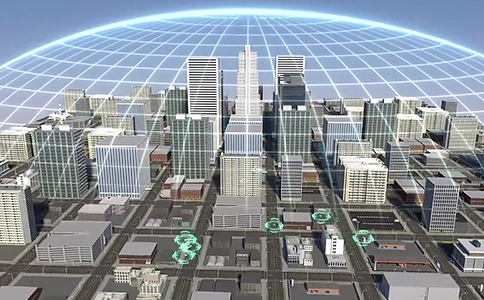Energy Security Crisis under the Threat of Drones In today's era of rapid technological development, drone technology is like a bright new star, showing great potential for application in many fields.However, this technology, which once brought people unlimited convenience and surprise, has gradually evolved into a safety hazard in the energy and chemical industry that cannot be ignored.
In the energy and chemical industry, drones have gradually evolved from being a mere tool to a deadly threat.As technology continues to advance, the threshold for drone technology is getting lower and lower, and various types of drones are readily available on the market.This has resulted in the risk of "black flights" in chemical plant areas increasing at a rate of 37% per year.The so-called "black flight" refers to the unauthorized operation of drones without the approval of the relevant departments.These "black flight" drones may carry all kinds of dangerous goods, and once they enter the chemical plant area, the consequences will be unimaginable.The traditional security system, which relies on human patrols, surveillance cameras and other means, is overwhelmed by the increasing threat of drones and is facing serious challenges.The limitations of the traditional security system are becoming more and more obvious, and there is an urgent need for a more advanced, drone countermeasure system to guard energy security.
Three Pain Points for Drone Defense in the Chemical Industry
Monitoring Blind Spots in Complex Scenarios Chemical parks usually cover dozens of square kilometers, like a huge industrial castle.This vast area is densely populated with intricate piping systems and flammable and explosive devices.These pipeline corridors are like blood vessels of the human body, crisscrossing and connecting various production facilities; while flammable and explosive devices are like a time bomb, which may cause serious safety accidents once problems occur.

Traditional means of surveillance have three obvious limitations in such complex scenarios.The first is the problem of visual dead space.Chemical parks in the top of the tank and overhead pipeline corridor and other areas, due to its special location, the traditional surveillance cameras are difficult to achieve full coverage.Imagine a huge oil storage tanks, the top of its towering, the camera's perspective is difficult to fully cover the entire top area.Moreover, aerial pipe corridors are often erected very high, there is no suitable installation location around them, resulting in surveillance equipment can not effectively monitor them.This makes these areas a blind spot for surveillance, providing an opportunity for drone intrusion.
The second is the impact of environmental disturbances.The production process in the chemical park will produce a large number of steam emissions and thermal radiation and other phenomena.Steam emissions will form a hazy layer of fog in the air, blocking the line of sight of the monitoring equipment, making its detection accuracy greatly reduced.Thermal radiation interferes with the normal work of the monitoring equipment, causing it to misjudge or fail to accurately identify the target.
For example, when a thermal imager is subjected to heat radiation, it may mistake some hot devices for drones and send out false alarms. The problem of response delay.Manual inspection is an important part of the traditional security system, but manual inspection has great limitations.The chemical park is a vast area with many equipments, so it is difficult to do real-time monitoring by manual inspection.Moreover, the flight speed of drones is very fast, and when manual inspectors find drones, they often have missed the time to intercept them.
For example, a high-speed drone can fly over a large area in a matter of seconds, whereas a manual inspector may still take several minutes or more to reach the scene, leading to response delays and an inability to detect and respond to fast-moving targets in a timely manner.The three major pain points of drone defense in the chemical industry and on the chemical plant drone countermeasures on any questions you have can directly contact the Nanjing clairvoyant aviation customer service.
Our hours
Mon 11/21 - Wed 11/23: 9 AM - 8 PM
Thu 11/24: closed - Happy Thanksgiving!
Fri 11/25: 8 AM - 10 PM
Sat 11/26 - Sun 11/27: 10 AM - 9 PM
(all hours are Eastern Time)